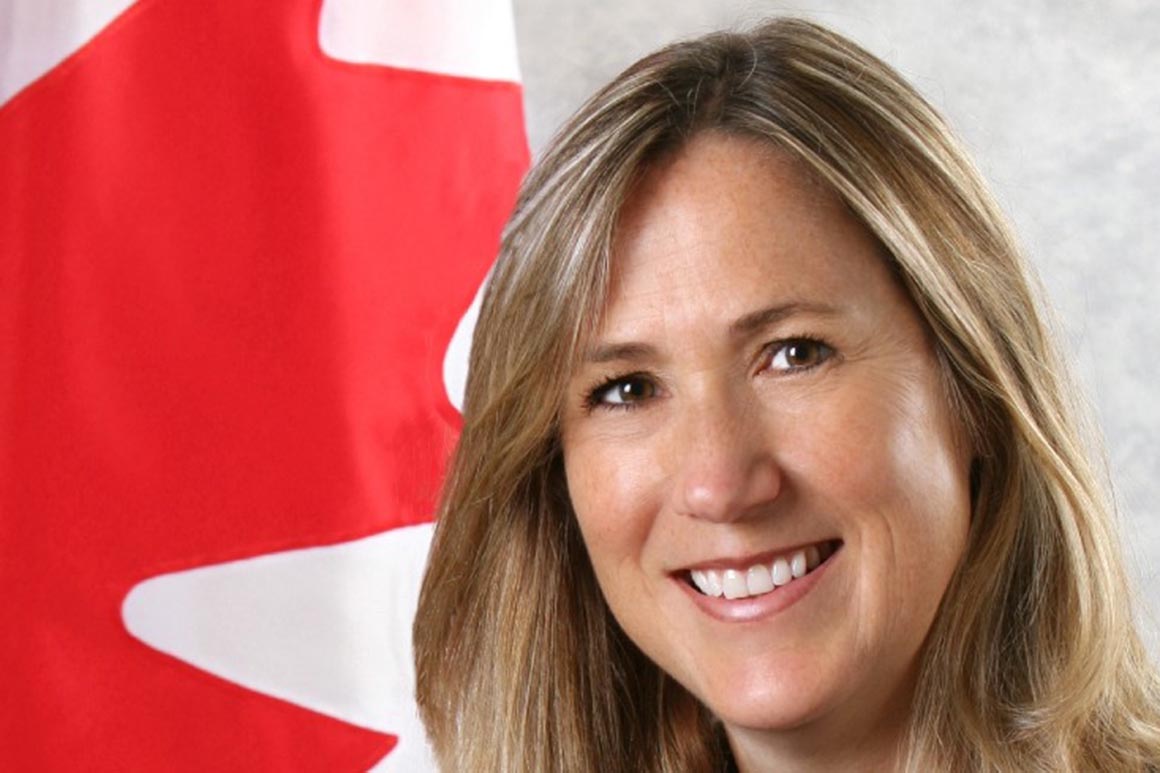
There are fewer certainties in the current situation, he said. “It’s a virus, so it’s a little less identifiable in some ways in how you fix it,” he told POLITICO when asked about how Canada and the U.S. might be managing the frontier. “It’s more transportable across borders.”
Trump is also a wild card. “The major difference is, you have a much more unpredictable president in the White House who tends to operate a bit more on gut as opposed to listening to his advisers who have experience in certain areas,” Kergin said.
Renegotiating NAFTA was useful training for these unpredictable days, Greenwood said. “At the time, [it] was viewed as an existential threat to the Canadian economy, so the approach had to be commensurate with the threat,” she said. “And so, the kind of, all hands on deck, set partisanship aside, everybody row in the same direction approach to that was really good practice for this.”
It can’t hurt that Hillman is an expert on supply chains in light of worldwide runs on personal protective equipment that spurred the White House’s protectionist move to try to force 3M to cease exports across North America.
Freeland praised Hillman’s expertise as she was named Canada’s first female U.S. ambassador. “She is among the most reliably kind, smart, and effective people I know — and we are fortunate to have her in this critically important job at this time,” she said.
Perhaps her biggest challenge once the immediate public health crisis has passed will be to figure out with the Americans how the two countries will economically recover — and whether Washington moves even more toward protectionism, said David MacNaughton, Hillman’s predecessor as ambassador.
The two countries recently struck an agreement two years in the making on a critical minerals strategy to address a global supply currently dominated by China, MacNaughton said. Once the pandemic has subsided, Canada and the U.S. will have to more widely address “what are the things in the supply chain that we should actually be caring about in the sense of our overall security, whether it be for health or for anything else,” he said.
“I suspect there’s going to be a lot of consideration after the fact as to what is it that is necessary to maintain our security in a broader sense … how North America can become more resilient and more secure,” MacNaughton added.
Despite the pandemic’s time demands, Hillman said she doesn’t think other bilateral issues have fallen to the wayside.
„My job, as I see it specifically, is to ensure that we sort of protect and advance the interest of Canada and Canadians here in the United States — through making sure we have all the contacts we need, making sure the issues that matter to us are being heard by the people who need to hear them so that our economy, our environment, our energy relationship, our health and our security are all being safeguarded in relation to the Canada-U.S. relationship,“ she said. „I think all of those things are at play right now.”
Indeed, Hillman and Canadian diplomats will still have to navigate a handful of pressing bilateral matters with the added complication of Covid-19:
— USMCA implementation is still moving ahead, albeit with more time for the auto industry to figure out how it will comply with stricter continental production rules.
— The Keystone XL pipeline remains an irritant more than a decade after its proposal, as the U.S. judicial system keeps throwing roadblocks in the way of construction. The cratering of global oil prices could also force Canada and the U.S. to seriously consider a North American energy strategy that for more than a decade has been little more than banter among energy wonks and certain lawmakers.
— The bilateral Safe Third Country Agreement will have to be revisited once health concerns ease, since the Trudeau government secured what officials say is a “temporary” reprieve from processing irregular migrants by now being able to send them back to the U.S.
— Prescription drug prices — plus medical supplies writ large — may resurface yet again as a major issue once state and provincial lockdowns ease.
If nothing else, the challenges of the coronavirus only emphasize the importance of neighbors.
„Maybe now more than I’ve ever seen before, the effort that we put into [maintaining good relationships with the U.S.] is bearing fruit and is, I think, doing nothing if not in fact reaffirming from both countries and both governments that we’re in this together,“ Hillman said.
Source: politico.com
See more here: news365.stream






